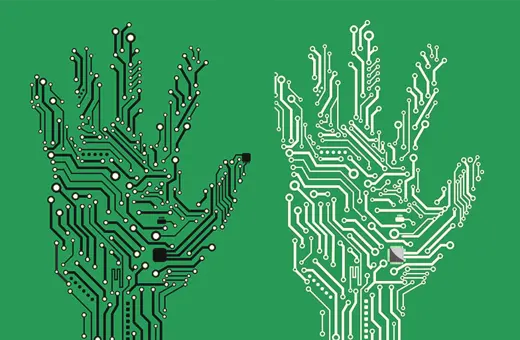Early morning wake-up, cold showers, fasting, abstention from alcohol, pornography and other dopamine triggering stimuli. This isn’t a religious rule book, it’s the latest self-help mantra from neuroscience gurus like Andrew Huberman and followed by celebrities like Joe Rogan. But the similarities between the two types of ascetic practice should worry us, writes Alexis Papazoglou.
If you haven’t tried out intermittent fasting, you probably know someone who has. The 16/8 approach (fast for 16 hours, eat for 8) has gained significant popularity as an approach to weight loss, burning fat, focus improvement, and all-round health hack. Even I’m giving it a shot at the moment, despite my reservations about the ideology animating it.
The origins of fasting practices can be found in religion. Most religions include some form of fasting, with Buddhism and Islam being ones that explicitly include intermittent fasting – the restriction of eating and even drinking for several hours a day. In its more ascetic versions, Christianity also included the practice of going with no food for days. There is a kind of charitable interpretation of these practices which sees them as anecdotal wisdom being incorporated within religions as a way to help people comply. Scientific research seems to back claims about the various benefits of fasting, including fat loss, cell regeneration, reduced inflammation, increase in energy, and at the extreme end of the spectrum, increased longevity. If fasting makes you live a healthier and longer life, it’s no surprise that religions wanted to incorporate it into their practice. But such an interpretation ignores the ideological and spiritual meaning of these practices.
___
Contemporary, secular, ascetic practices are presented as part of a new, well-researched, science-driven, way to “hack” our bodies.
___
Within a religious context, fasting is a spiritual practice – it reflects most religions’ distain for the material, the bodily, and at the same time an elevation of the mental and immaterial. In the case of Christianity there is the added element of the original sin, the idea that humans are fallen, imperfect, morally corrupt beings, and ascetic practice, the limiting of earthly pleasures, is a way to make up for that. Religious fasting, then, is deeply ideological, far from serving merely practical goals of promoting health and well-being. The meaning of the fasting lies in the practice itself – a symbol of the perceived poverty and corrupt nature of the material, and by contrast, the power of the spiritual. Nietzsche called this the ascetic ideal.
On the face of it, contemporary fasting and other ascetic-like practices such as abstaining from alcohol, having cold showers, restricting dopamine-increasing activities like masturbation, eating sugar etc. are nothing like that. Contemporary, secular, ascetic practices are presented as part of a new, well-researched, science-driven, way to “hack” our bodies. Ascetic practices are put forward as purely instrumental, practical, and non-ideological - merely a good set of tools for reaching one’s goals, be it losing weight, athletic achievement or mental focus. But things are not that straightforward. Below the surface remains an ideology that sees us as broken and corrupt beings that need fixing.
___
A criticism from the left has noted the fact that self-help ideology is excessively individualistic. It places the burden of our problems on the individual, rather than looking for their more systemic, structural roots.
___





















Join the conversation